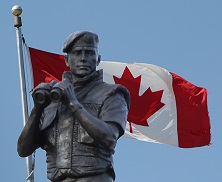True and Fascinating Canadian History
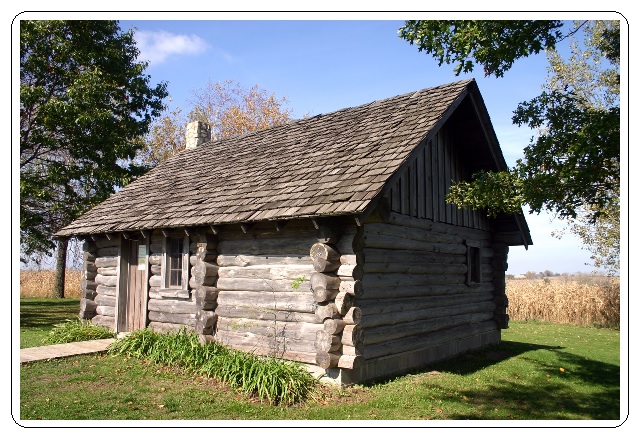
Vet of the Month: April, 2015
O.49, Superintendent Richard Burton Deane
RCMP Vets. Ottawa, ON
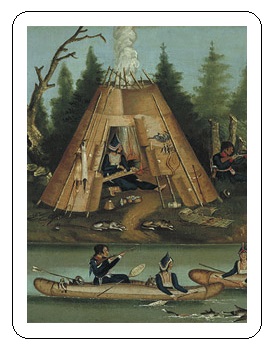
Few people would have casually volunteered as a pioneer in the early settlement of Canada's west if one seriously considered the harsh times; endless cold winters, the lack of food and warm shelter, impassable travel routes, and the likelihood of hostilities between the Aboriginals and settlers some of whom were farmers.
As a pioneer Officer, and a Superintendent in the Force, author Richard Burton Deane portrayed the realism of early days in the North West Mounted Police (NWMP) in his memorable book entitled: Mounted Police Life In Canada. Another dimension of his professional life included a wide range of criminal investigations including murder.
Briefly, Richard Deane served for over thirty years in the NWMP. His career was marked by transfers across the prairies, some administrative accomplishments which were deeply needed in the early Force, as well as by difficult criminal investigations. He first served at 'Depot' in Regina, SK, then Lethbridge and Fort Macleod, AB as well as Maple Creek, SK and Calgary, AB.
It was said that Richard Deane was born into a family with a long, British military pedigree. His father served as a clergyman with the Church of England in India and its where Richard was born in 1848. At an early age, his family returned to England and eventually Richard attended Sandhurst Military College. He won a Commission in the Royal Marines, but the naval service was unexpectedly reduced, so he resigned his Commission and he set off for Canada. He was appointed an Inspector in the NWMP in 1883. He attained the rank of Superintendent one year later.
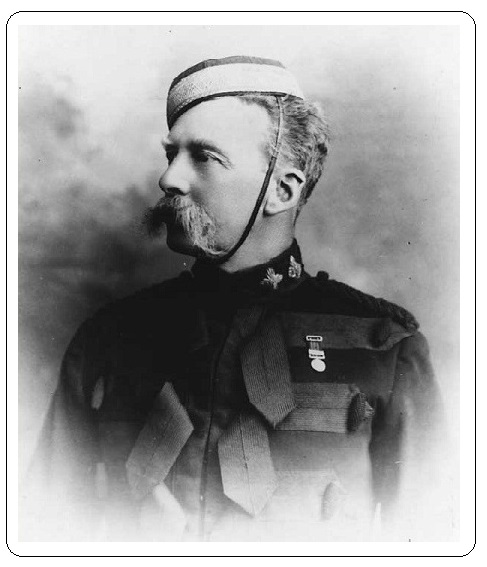
In his book, Deane provided an excellent glimpse of 'Depot' in 1885. It was a time of rapid growth for the NWMP -- its establishment went from 500 to over 1,000 men. While some Officers and men were dispatched from 'Depot' to engage in the first volleys of the North West Rebellion at Prince Albert, SK., Deane remained at 'Depot' as the Senior Officer set to manage a crush of about 600 new recruits. Over time,he recalled that it was necessary to pitch large tents between the houses on the 'Depot' Square, to find blankets, to feed and to find suitable clothing and boots for the recruits in the shops around Regina.
Deane's enthusiam and upbeat memories of those days at 'Depot' was apparent. He wrote, 'Of the recruits I can say that they were the finest and best behaved lot of men that I have ever been connected with. They gave no trouble, and settled down to learn their business with determination'. (p. 22). It just so happened that Deane had the instinct to succeed, the right Officer's qualifications and the necessary leadership skills to ensure that the huge intake of recruits at 'Depot' went smoothly.
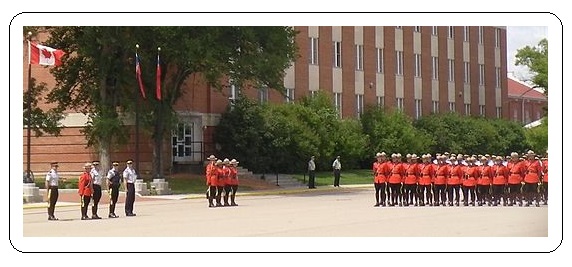
He did have a sense of humour too -- especially if it was at the expense of a more senior Officer. In this case, the jig back fired on the Commissioner. The funny incident happened this way. It so happened that a certain Staff Sergeant submitted his application to get married, but all marriages were denied for the NCO's and men by Commissioner Herchmer. Instead, a promotion to Inspector was offered to the Staff Sergeant. The Commissioner said, 'There is a Commission coming to you if you remain single, but you will have to choose between the Commission and a wife'. The Staff Sergeant retorted, 'Thank you Sir, I'll take the wife'. (p. 30). The Staff Sergeant's promotion was dead. At least, everyone thought it was dead. If only temporarily dead.
A short time later, the story of the Staff Sergeant made the rounds in Ottawa and it reached the ear of the Prime Minister. Mr. MacDonald said, 'I like his spirit; he shall have the Commission too, and he gave it to the bridegroom'. (p. 31). Deane giggled. The incident demonstrated that although there was political interference in the early Force, at times a direct decision by the Prime Minister could actually benefit certain NCO's.
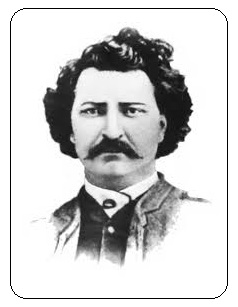
By far, the greatest portion of Superintendent Deane's book was serious business. For instance, Louis Riel was delivered to Superintendent Deane at 'Depot' by Officers of the Winnipeg Field Batteries on May 23, 1885. A full chapter was devoted to the prisoner, his trial and his execution which, incidentally, also took place at 'Depot'.
During his lengthy incarceration, Louis Riel and Superintendent Deane became acquaintences but, one could say, not on a personal level. A certain trust existed between the two men, and in the final hours of his life, Riel entrusted certain personal papers to Superintendent Deane. The contents of the papers were not disclosed by Deane until many, many years after Riel's death. The trial and execution of Louis Riel left an unforgettable impression on Superintendent Deane as was evident in Deane's recall of the Riel events many years later.
Over and above the Louis Riel matter, there were also other serious criminal investigations which touched on the life of Superintendent Deane; the Tucker Peach Murder, the Benson Murder and Arson case as well as the Wilson Murder and Robbery to name but three -- each spelled out in quite graphic detail.
In the course of the police investigations, Deane provided clear descriptions of the crime scene -- descriptions that only a police officer could sketch and colour. Telling about one murder case, Deane said, 'The body had been washed against the trunk of a fallen tree in the river; part of it, which was out of the water, was very much discoloured, and the whole of it was very decomposed. When brought to land, there was found to be no head on the body...' (p. 234). There can be little doubt that Deane would have had to be an experienced police officer to face such horrific murder scenes.

In another case, he provided an equally vivid description of the Wilson murder. Superintendent Deane said, 'Wilson was killed by a bullet which entered his body at the fleshy part of his left arm, passed through both lungs, and was found between the under and outer shirts on his right arm'. (p. 257). In his book, Superintendent Deane never disclosed whether or not grisly murder scenes ever bothered him or kept him awake at night.
Superintendent Deane was the kind of Officer who never forgot to give credit to other police investigators for their good work. After one case was wrapped up, he received a congratulatory letter from the Assistant Attorney General. In his reply of acknowledgement, Deane said, '...we could not have done what we had done for the valuable assistance received from the Canadian Pacific Railway Police and the City of Calgary, both of who helped us to watch all avenues of escape'. (p. 261). Deane was a very senior and experienced NWMP Officer, and he has to be admired for his generousity of spirit towards his subordinates.
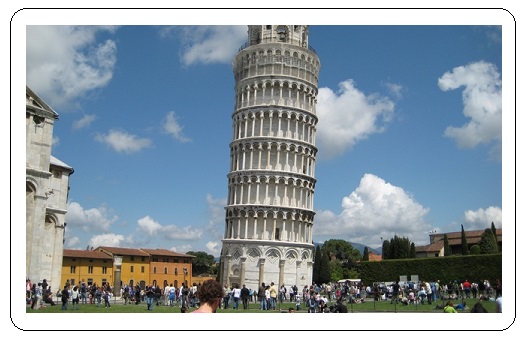
His book is a fascinating read, but an easy one. The whole book can be covered in an evening. It is rich in its historical context of the early ways and days of the Force. Deane has tobe congratulated for leaving us with his book, Mounted Police Life In Canada.
After his NWMP career, Superintendent Deane retired to England. He went to Italy hoping to improve his health. He died in 1930 and he was buried in Italy.
Photo of Superintendent Deane was courtesy of Sheldon Boles. Vets Vancouver, BC.
Reporting from the Fort,
J. J. Healy
April 23, 2015
Deane, Richard Burton. (2001). Mounted Police Life In Canada. Toronto. Prospero. From the 1916 Cassell and Company edition.

